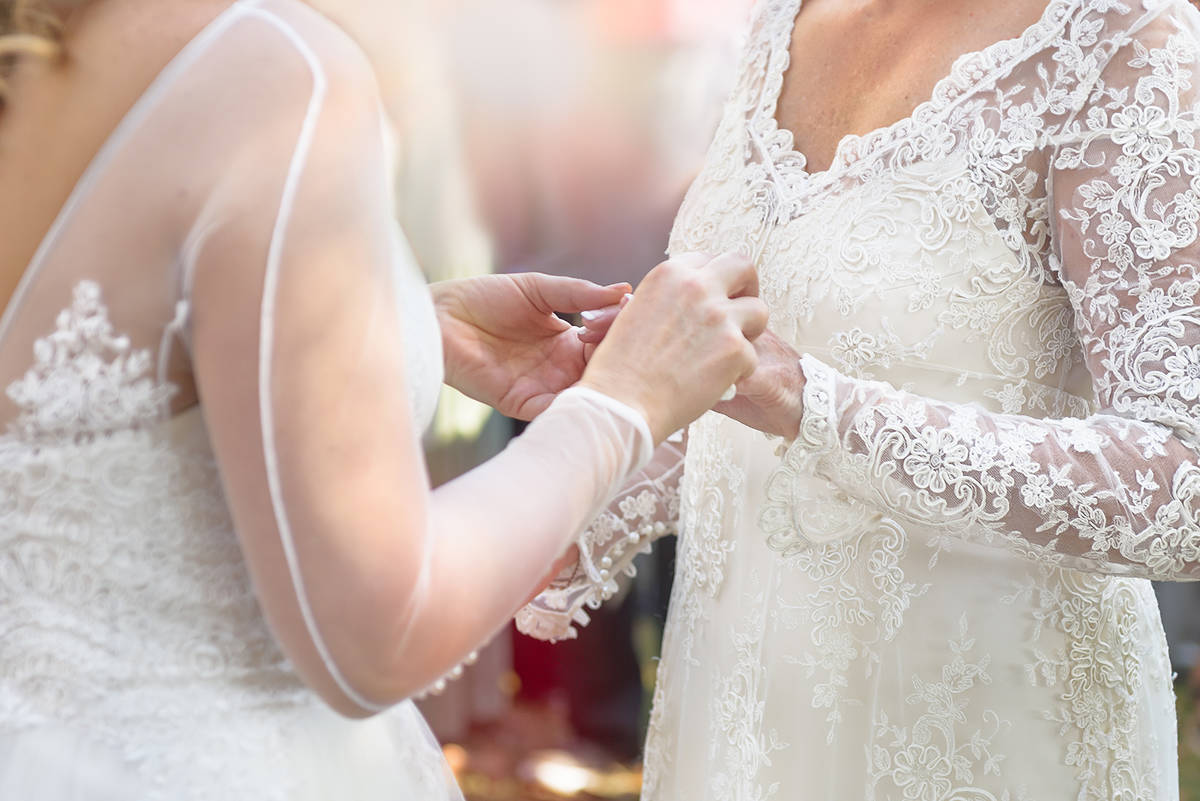Nevada may be first to protect same-sex marriage in state Constitution
With all eyes on the outcome of the presidential race, Nevada appears to be quietly on its way to making history with another general election outcome.
Nevada is poised to become the first state to add protections for same-sex marriage in its state Constitution, as it appears Question 2 is on its way to being approved with 62 percent of the votes cast as of Friday.
Although the “yes” vote is ahead by 287,967 votes with just 120,000 ballots left to be processed, the Associated Press had yet to declare a winner as of Friday afternoon.
“The people have spoken, sending a clear message to the state of Nevada that LGBTQ equality is a priority for voters,” said Nevada State Director of the Human Rights Campaign Briana Escamilla in a statement. “Nevada has sent a message that it is a welcoming place for anyone looking to make a life here. This overwhelming majority should be a reminder that LGBTQ equality is not just the right thing to do, it is exactly what Nevadans want.”
If Question 2 passes, it would recognize marriage, regardless of gender, by the state Constitution.
Though same-sex marriage is legal across the country following a 2015 decision by the U.S. Supreme Court, some language in the Nevada Constitution conflicts with the ruling.
In 2000 and 2002, Nevada voters approved a constitutional amendment that defined marriage as exclusively between a man and a woman.
Passage of Question 2 would remove that verbiage from the state Constitution, while also providing protections for clergy who choose to not perform same-sex ceremonies.
Wesley Juhl, spokesman for the ACLU of Nevada, said the protections pertain only to religious ceremonies and do not extend to private businesses that might have a part in a wedding.
“A lot of members of Queer communities have had a reaction to the provision around churches, and I think there’s been some misinformation,” Juhl said. “I think people conflate that with places like bakeries and florists, where it’s really only talking about religious ceremonies in actual churches.”
With the makeup of the U.S. Supreme Court changing recently, there’s been some concern that the ruling legalizing same-sex marriage could be overturned. By amending its constitution, Nevada is providing an extra measure of security for same-sex married couples.
“It’s definitely been on the minds of the LGBTQ-plus community,” Juhl said. “The court has definitely swung more conservative in recent weeks… People will feel good to know that no matter what happens (nationally) they’ll continue to be protected in Nevada.”
Additionally, the passage of Question 2 removes any possible conflicts with other states that might not recognize a Nevada domestic partnership and allows same-sex married couples all the benefits marriage provides, including family-related Social Security benefits and filing a joining tax return.
“Nevada is made up of diverse people from all walks of life and we are all trying to do the best we can in this world,” said Daela Gibson, director of Public Affairs for Planned Parenthood, Mar Monte, in a statement. “Being able to marry whom we choose to marry should be our decision, and Nevadans clearly agree.”
Contact Mick Akers at makers@reviewjournal.com or 702-387-2920. Follow @mickakers on Twitter.
Where the other ballot measures stand
Question 1: Board of Regents
About 51 percent of the votes counted so far oppose Question 1, which would remove the Nevada System of Higher Education Board of Regents from the state's Constitution. The "no" vote leads by 23,686 votes, with over 120,000 ballots left to tabulate.
Question 3: Pardons board
So far, 60.37 percent of votes counted said "yes" to Question 3, which would make multiple changes to the state Board of Pardons Commissioners.
The board, composed of the governor, the attorney general and state Supreme Court justices, would be required to meet quarterly to deliberate possible pardons. As it stands, there is no mandate on how often the board has to meet.
The passage would allow any member of the board to submit a matter for consideration and allow the board to grant pardons and other clemency decisions by a majority vote of its members without requiring the governor to be in favor. As it stands, the governor can block an application for clemency even if the rest of the board is in favor of it.
Question 4: Voters' rights
The yes vote is leading with 63.12 percent of the vote on Question 4, which would insert various voter rights into the Constitution.
A Voters' Bill of Rights is already in place, created by the Legislature, but passage of Question 4 would amend the Constitution to add a similar list and add increased protection of the state.
Those rights include the ability to receive a ballot written where each candidate is clearly identified; the ability to ensure the accuracy of a voter's selection; allowing a voter to request assistance, if needed; having a uniform, statewide voting system for counting and recording votes accurately.
Question 6: Energy mandate
Yes votes are leading with 56.93 percent of the vote on Question 6, which would mandate the state generate 50 percent of its energy from renewable resources by 2030 if passed.
The Legislature passed a similar requirement last year, but the passage of the question would add it to the Constitution.
— Mick Akers























